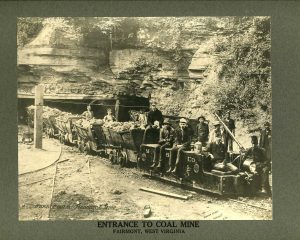Our colleagues Jay Silberg and Vince Morgan report on a U.S. Government Accountability Office (GAO) sting operation in Texas during which GAO investigators obtained a radioactive material license in the name of a fictitious business permitting it to purchase dangerous quantities of radioactive material, and the related fallout. The client alert is titled Texas Sting Operation Increases Focus On Radioactive Material Pre-Licensing Activities.
Registration Process in China Simplified
Yesterday, our colleagues David Livdahl, Jenny (Jia) Sheng, and Wenjun Cai published an informative client alert discussing the State Administration of Industry and Commerce’s (SAIC) October 18, 2016 Guiding Opinion on Opening-up Enterprise Name Database and Promoting the Reform of Enterprise Name Registration (Guiding Opinion). Now applicants for a company registration in the People’s Republic of China will be able to check the names of existing companies in the database to avoid using a duplicate name that will result in the application being rejected by the SAIC’s local counterparts (AICs). This is expected to simplify the company establishment process and, furthermore, SAIC indicated that it will abolish the name pre-approval requirement in the near future. The client alert is titled Another Step to Speed Up the Company Registration Process in China.
EPA’s “EJ 2020 Action Agenda”
Environmental Protection Agency (EPA) recently released its “EJ 2020 Action Agenda.” EPA confirms that it will three basic goals:
- Deepen the environmental justice (“EJ”) practice within EPA programs;
- Work with it “partners” — other federal agencies and state and local governments — to advance EJ programs; and
- Demonstrate progress in significant EJ challenges, namely, lead disparities, drinking water, air quality, and hazardous waste sites.
TX Court of Appeals Reaffirms That “Preponderance of the Evidence ” Test Can Be Applied To TCEQ Orders Issued Under The TSWDA
On April 8, 2016, the Texas Court of Appeals, Third District, at Austin, issued an important decision interpreting the standard of review that applies to the judicial review of certain administrative enforcement orders issued by the Texas Commission on Environmental Quality (TCEQ). The case is TCEQ v. Exxon Mobil Corporation, et al., and involves the cleanup of the Voda Petroleum State Superfund Site (VPSSS). The Court of Appeals held that the appropriate standard for the judicial review of the TCEQ’s order was the “preponderance of the evidence” test, where the TCEQ has the burden to prove the defendants are liable parties under the law. The TCEQ argued that the “substantial evidence” test was applicable. On October 31, 2016, following a motion for rehearing filed by the TCEQ, the Court of Appeals withdrew that opinion, and substituted a new opinion which essentially clarified the original ruling, and denied the TCEQ’s motion. Continue Reading ›
9th Circuit Upholds Lake Tahoe Regional Development Plan Update
Affirming the district court, the U.S. Court of Appeals for the Ninth Circuit rejected  claims that the environmental impact statement (EIS) adopted by the Tahoe Regional Planning Agency supporting the Regional Plan Update (RPU) failed to comply with the requirements of the Regional Planning Compact between California and Nevada (Compact). The case is Sierra Club, et al., v. Tahoe Regional Planning Agency, decided on November 2, 2016.
claims that the environmental impact statement (EIS) adopted by the Tahoe Regional Planning Agency supporting the Regional Plan Update (RPU) failed to comply with the requirements of the Regional Planning Compact between California and Nevada (Compact). The case is Sierra Club, et al., v. Tahoe Regional Planning Agency, decided on November 2, 2016.
WA Court Denies MSJs in CWA Citizen’s Suit Over Alleged Illegal Discharges of Coal and Coal Dust
A group of environmental organizations, headed by the Sierra Club, filed a Clean Water Act (CWA) citizen’s lawsuit against the BNSF Railway Company, alleging that the railroad, the only transporter of coal in Washington, illegally discharges coal and coal dust into the waterways of the State of Washington by virtually every one of its shipments of coal through the state. Motions for summary judgment were filed by both the plaintiffs and BNSF Railway. On October 25, the U.S. District Court for the Western District of Washington, seated in Seattle, in a significant ruling, denied both motions. The case is Sierra Club, et al., v. BNSF Railway Company.
The plaintiffs alleged that each and every train operated by BNSF Railway discharges coal pollutants into the waters of the United States without a CWA permit. The coal is allegedly discharged through holes in the bottoms and sides of the rail cars or emitted from the open tops of the rail cars and the train. BNSF Railway has denied these claims, and also argues that the CWA, in this instance, is preempted by the Interstate Commerce Commission Termination Act, 49 U.S.C. §§ 10101 et seq. (ICCTA).
With respect to BNSF’s argument that the plaintiffs do not have standing because they cannot use a limited number of waterbodies in a representative capacity to establish standing for all waterbodies in the State of Washington, the District Court noted that, at this stage, it was bound by a Ninth Circuit precedent, Alaska Center for the Environment, et al., v. Browner. The Ninth Circuit, in the 1994 Browner decision, held that a plaintiff seeking state-wide environmental relief was not required to demonstrate harm over the entire state, but was only required to establish that a representative number of areas were adversely affected by the Environmental Protection Agency’s (EPA) inaction, and that “for CWA regulatory purposes, all waters of the state were interrelated.”
The plaintiffs urged the District Court to find that there is no dispute that BNSF is liable for discharging coal into Washington’s waterways without a permit in violation of the CWA; and suggested that BNSF may have violated the CWA over 12 million times in the years 2012 through 2015 based on the number of trips that the BNSF railcars made during this period. The District Court was not convinced that the plaintiffs had demonstrated that BNSF operations were in violation of the CWA because it had not been established that “point source” discharges were involved. The defendant argued that coal emissions to land, coal emissions from land to water, and coal dust emissions are not point source discharges. On the one hand, the District Court agreed with this argument, holding that the plaintiffs “have not provided evidence that there was a discrete conveyance of coal into the water from coal that is deposited onto the land adjacent to the tracks.” Also, coal dust deposited in navigable waters from BNSF trains “is not a point source discharge unless there is a discrete conveyance.” On the other hand, the District Court concluded that direct discharges of coal and coal particles form the trains that travel adjacent to or above the waters at issue are point source discharges. Consequently, while some discharges are evidently violations of the CWA, the District Court declined to find the railroad liable for any CWA violations at this time because there are disputes of material fact that must be resolved at trial.
The District Court also declined to rule on BNSF’s ICCTA preemption argument at this time.
Texas District Court Stays “Blacklisting” Rule
Our colleagues Julia Judish, Dick Oliver and Glenn Sweatt recently published a very interesting client alert discussing U.S. District Court Judge Marcia A. Crone’s issuance of a preliminary injunction that suspends the implementation of certain portions of President Obama’s Executive Order 13673, called the Fair Pay and Safe Workplaces Executive Order, that otherwise would have gone into effect on October 25. Judge Crone enjoined two key provisions in the new regulations that would require government contractors and subcontractors to report adverse labor law determinations and prohibit pre-dispute arbitration agreements regarding matters under Title VII of the Civil Rights Act and torts based on sexual assault or harassment. These regulations, commonly called the “blacklisting” rule by opponents, could be used to preclude otherwise qualified government contractors from receiving awards of federal procurement contracts. The alert is titled Executive Order Stayed by District Court Judge.
Additional Source: Associated Builders and Contractors of Southeast Texas v. Rung, No. 1:16-CV-425 (E.D. Tex. Oct. 24, 2016); Final Rules and Guidance Issued on “Blacklisting” Executive Order
9th Cir. Upholds ESA Listing of Pacific Bearded Seals on the Basis of Climate Projections
On October 24, the U.S. Court of Appeals for the Ninth Circuit reversed the district court and upheld the determination of the National Marine Fisheries Service (NMFS). The NMFS concluded that two distinct population species of the Pacific bearded seal subspecies –located in the shallow waters of the Artic—were likely to become endangered within the foreseeable future. Climate projections that the loss of sea ice over those shallow waters foreshadow that this subspecies will become endangered under the provisions of Endangered Species Act (ESA) by the year 2095. The case is Alaska Oil and Gas Association, et al., v. Pritzker. Continue Reading ›
and upheld the determination of the National Marine Fisheries Service (NMFS). The NMFS concluded that two distinct population species of the Pacific bearded seal subspecies –located in the shallow waters of the Artic—were likely to become endangered within the foreseeable future. Climate projections that the loss of sea ice over those shallow waters foreshadow that this subspecies will become endangered under the provisions of Endangered Species Act (ESA) by the year 2095. The case is Alaska Oil and Gas Association, et al., v. Pritzker. Continue Reading ›
WV District Court: EPA Has A Non-discretionary Duty Under The CAA To Evaluate Economic Losses Resulting From Government Action
On October 17, the U.S. District Court for the Northern District of West Virginia  granted summary judgment to Murray Energy Corporation, which sued the Environmental Protection Agency (EPA) seeking declaratory and injunctive relief against EPA because it has persistently failed to perform a nondiscretionary duty under Section 321(a) of the Clean Air Act (CAA) (42 U.S.C. § 7621(a)), to “conduct continuing evaluations of potential loss or shifts of employment which may result from the administration or enforcement” of the CAA with regard to the effect EPA’s actions are having on the coal industry and “the hundreds of thousands of people it directly or indirectly employs.” The case is Murray Energy Corporation, et al., v. McCarthy. Continue Reading ›
granted summary judgment to Murray Energy Corporation, which sued the Environmental Protection Agency (EPA) seeking declaratory and injunctive relief against EPA because it has persistently failed to perform a nondiscretionary duty under Section 321(a) of the Clean Air Act (CAA) (42 U.S.C. § 7621(a)), to “conduct continuing evaluations of potential loss or shifts of employment which may result from the administration or enforcement” of the CAA with regard to the effect EPA’s actions are having on the coal industry and “the hundreds of thousands of people it directly or indirectly employs.” The case is Murray Energy Corporation, et al., v. McCarthy. Continue Reading ›
Is Your Use of Standard Subrogation Waivers Leaving You Exposed
We recently posted an interesting blog on Pillsbury’s Policyholder Pulse titled Subrogation Waivers and the Perils of Litigation: Wavering on a Precipice. In it, we discuss the perils of using standard subrogation waivers in your insurance policies, and cautions against the use of standard waivers (which can have unintended consequences).
Subrogation Waivers and the Perils of Litigation: Wavering on a Precipice. In it, we discuss the perils of using standard subrogation waivers in your insurance policies, and cautions against the use of standard waivers (which can have unintended consequences).




